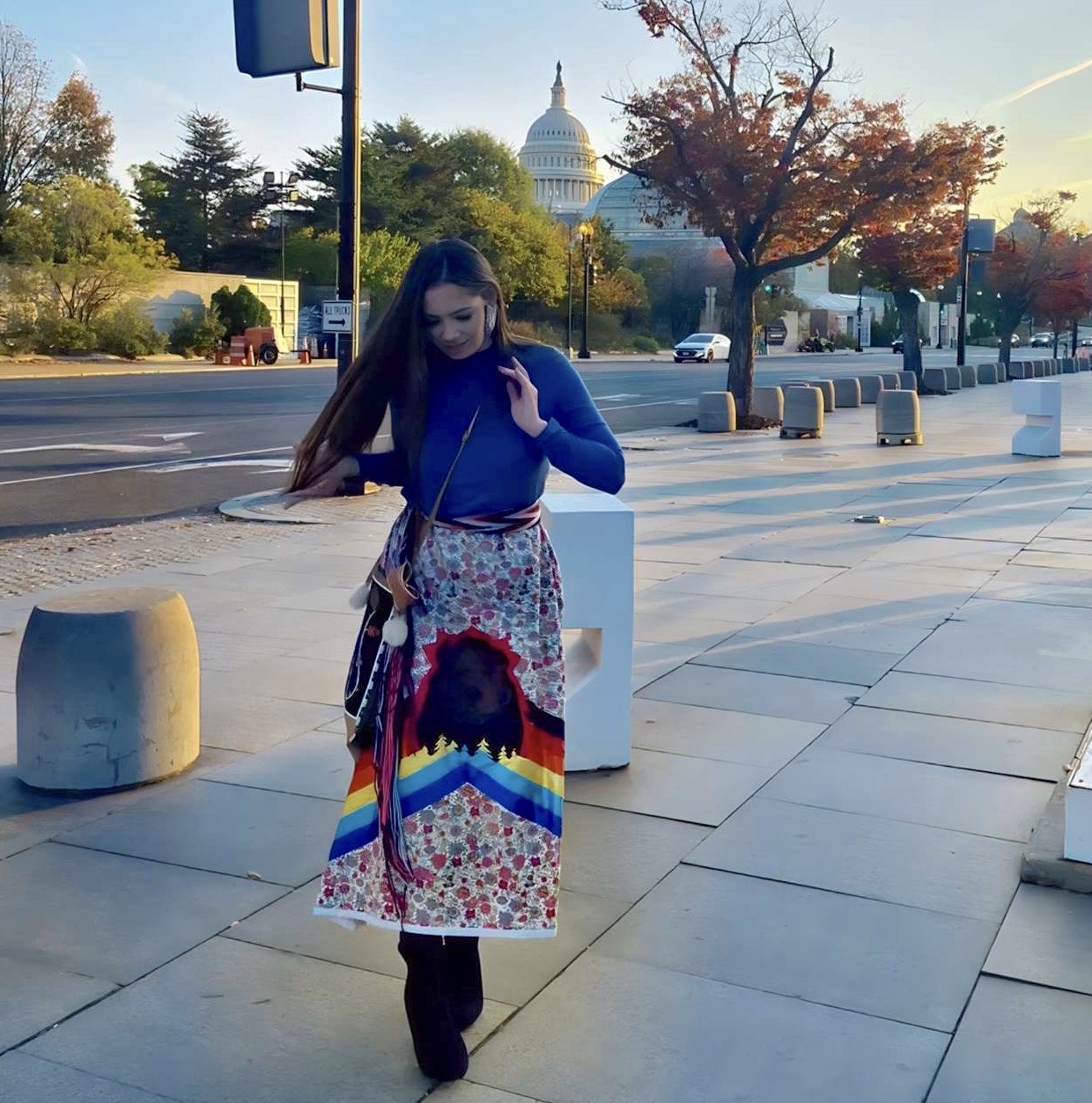Northern Michigan University student Riley Diehlman of Muskegon had the opportunity to participate in the White House Tribal Youth Forum the week of Nov. 5 in Washington, D.C. She is an enrolled member of the Little River Band of Ottawa Indians and is pursuing an associate degree in Native American community services.
“It was a really good space for Indigenous youth voices to be heard, not just nationally but globally,” Diehlman said upon her return. “I interacted with two or three people from other countries. I also spoke personally with Stephanie Sfiridis, the senior counselor to the assistant secretary of Indian Affairs. We talked about number of things, but mainly promoting Indigenous youth into positions in government and how representation matters. She had wonderful and encouraging words to say.
“It also meant a lot to hear from Rose Petoskey, who is from near my hometown and a member of the Michigan Grand Traverse Band of Ottawa Indians. She serves as senior adviser to the White House Office of Intergovernmental Affairs and director of Tribal Affairs for the Biden-Harris administration.”
About two weeks before the event, Diehlman said she received a private message from a Facebook contact seeking permission to nominate her to a committee of the Center for Native American Youth in D.C. That nomination led to her receiving an invitation from CNAY and the U.S. Department of Health and Human Services (HHS) to attend the White House Tribal Youth Forum.
Participants spent a full day in the HHS' Hubert H. Humphrey Building. They engaged in breakout sessions, all of which featured a government official at each table who offered advice on what it takes to secure a position at that level and how to overcome barriers along the way.
There were also panel discussions on important issues such as climate change and resiliency, the Indian Child Welfare Act, and boarding schools. One of the panelists was Bryan Newland, assistant secretary of Indian Affairs and a citizen of the Bay Mills Indian Community in the Upper Peninsula. He had led the investigation into the history of Indian boarding schools, which was documented in a sobering report released in May 2022 by the U.S. Department of the Interior.
The event kicked off the night before with an opening reception, round dance and culture jam at the National Museum of the American Indian.
“There were some amazing poetry, music and dance performances by other youth and professionals,” Diehlman said. “Taboo from the Black Eyed Peas was there, along with Miracle Spotted Bear, an up-and-coming Indigenous song artist. Both the reception and forum were incredible. I also spent a day afterward sightseeing and exploring different monuments because it was my first time in D.C.”
Diehlman also networked with members of UNITY, or United National Indian Tribal Youth. The organization seeks to “build a strong, unified and self-reliant Native America through greater youth involvement,” according to its website.
“My Northern professors were so generous for the most part in giving me that time to participate in these advocacy events,” Diehlman said. “They had a lot set up for networking and potential contacts for government positions. Not only will this look great on a professional resume, but I learned more about myself and what I want to do. People at the event really promoted the idea that we can do anything if we work hard, despite what we may think or others tell us. It was very uplifting.”
Learn more about NMU's Center for Native American Studies and its programs—including Michigan's first and only bachelor's degree in Native American studies—here.


